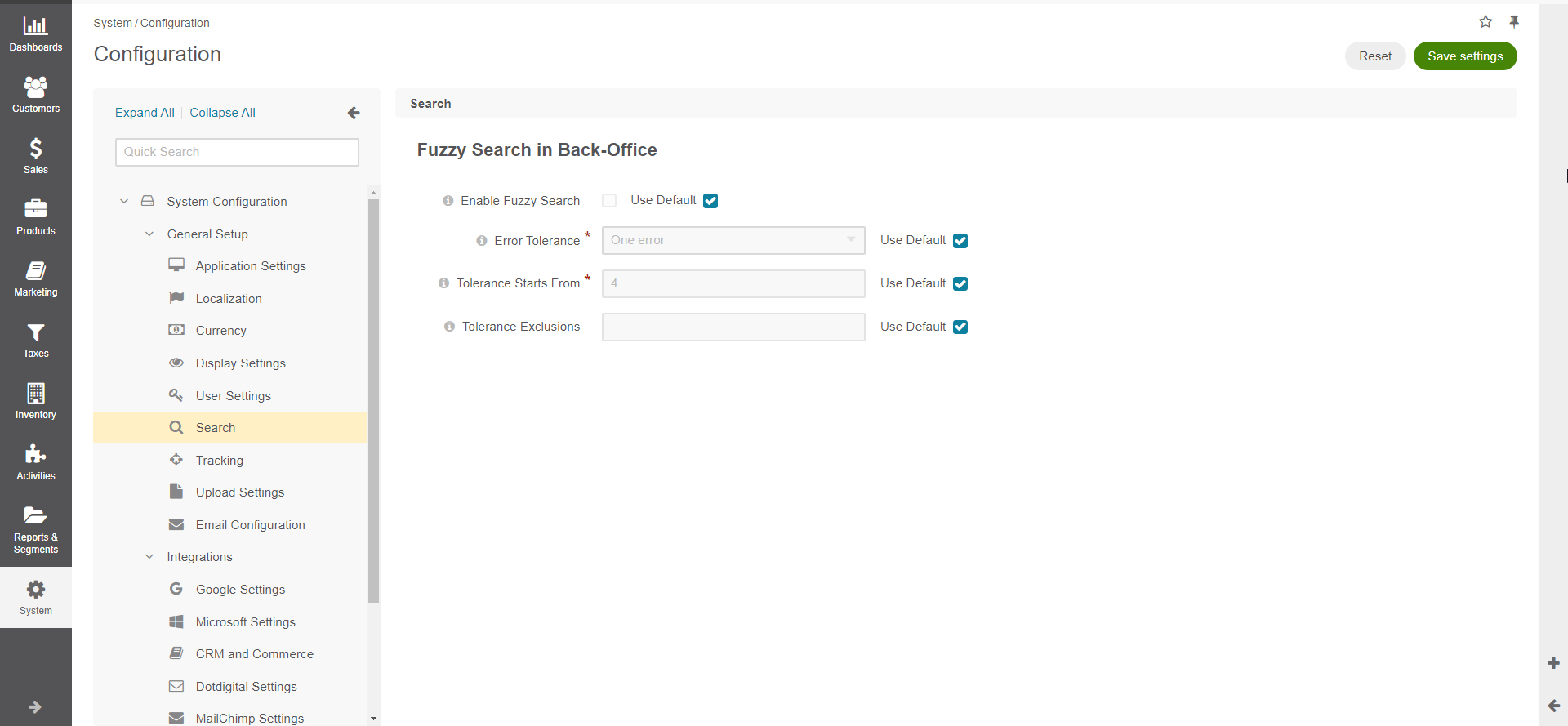Important
You are browsing documentation for version 5.0 of OroCommerce, supported until January 2025. Read the documentation for version 6.0 (the latest LTS version) to get up-to-date information.
See our Release Process documentation for more information on the currently supported and upcoming releases.
Configure Global Back-Office Fuzzy Search Settings
Important
The feature is available for the Enterprise edition only.
Hint
Fuzzy search is available starting from v5.0.1. To check which application version you are running, see the system information.
You can set up back-office error-tolerant (fuzzy) search in website search index requests to Elasticsearch. When enabled, it finds similar results for the passed request phrase word by word. Please be aware that this feature is not supported by the ORM search engine. For configuration options to set up fuzzy search in the storefront, see the Fuzzy Search in Storefront topic.
To configure the fuzzy search settings globally:
Navigate to System > Configuration in the main menu.
In the System Configuration menu to the left, expand General Setup and click Search.
Note
For faster navigation between the configuration menu sections, use Quick Search.

Configure the following options:
Enable Fuzzy Search — enables fuzzy search in the appropriate area. This option is disabled by default.
Error Tolerance — sets how many errors in each word the application ignores. Possible values are:
One Error (default) – one error per word is tolerated
Two errors – two errors per word are tolerated
Request based – tolerance depends on the length of the word. One error for short words (up to 5 characters) and two errors for long words (6+ characters).
Tolerance Starts From — sets a threshold for error-tolerant search usage. The default value is 4, which means that the application uses the exact match search for words with 1-3 characters and an error-tolerant search for words with 4+ characters.
Tolerance Exclusions — allows setting regular expression for words that must not use error-tolerant search; the exact match search is used instead. This option is beneficial for SKUs, manufacturer IDs, and other identifiers that may have similar values and lead to false-positive results when the error-tolerant search is used.